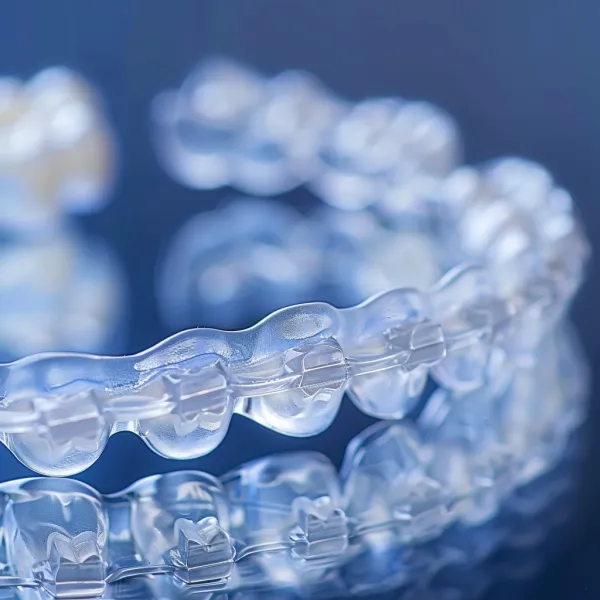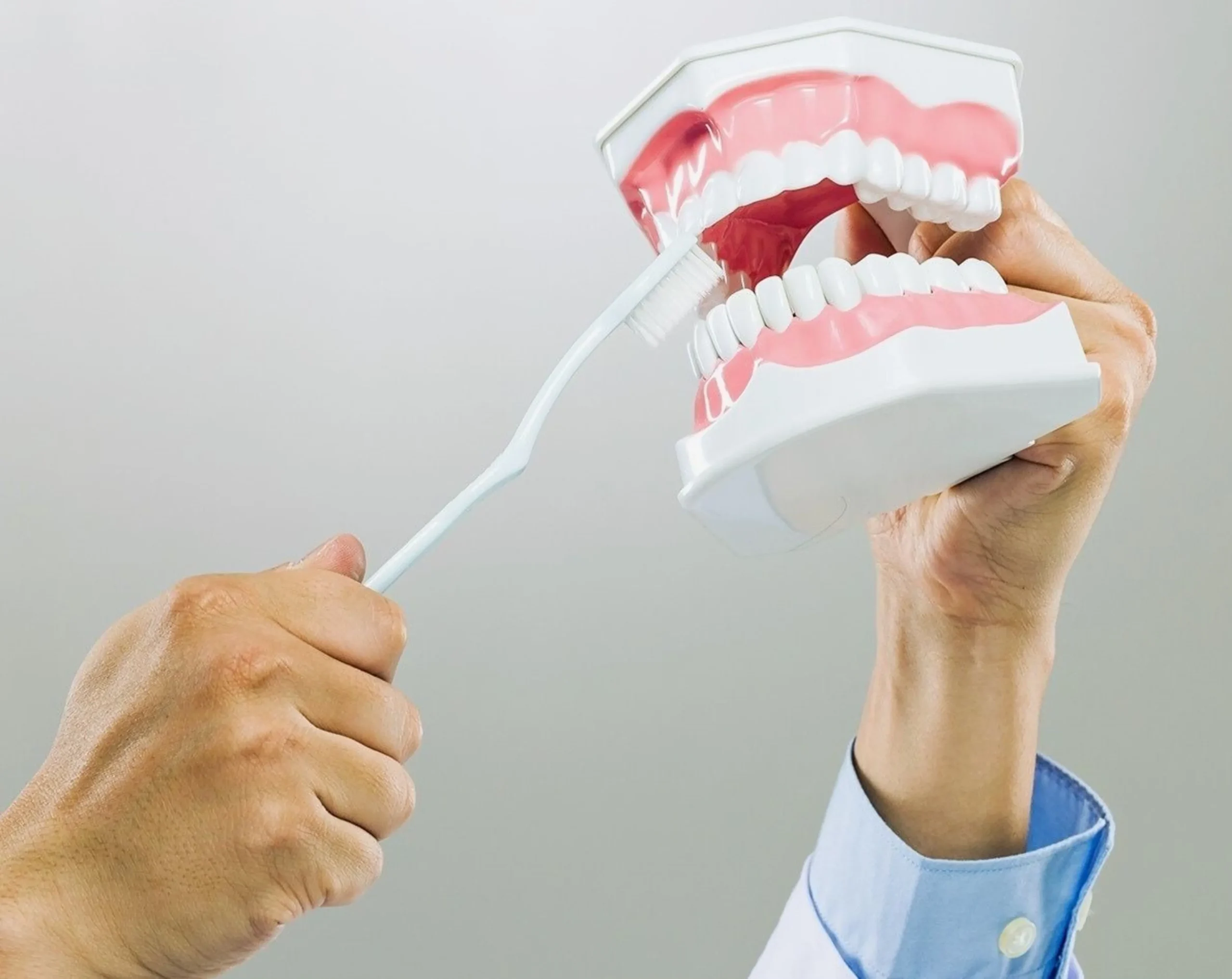The joy of every dentist is to restore the beautiful and healthy smiles of their patients. Initially, significantly lower or upper teeth loss meant that you had to put up with uncomfortable dentures. But, with the introduction of dental implants, it became possible for people to have fully functional teeth with natural looks so much that no one can tell that they are artificial.
With the all-on-4 dental implants, people can now have a whole row of teeth replaced at a go.
What are All-on-4 Implants?
These implants are referred to as full-arch, fixed implant bridges. Four dental implants usually support the bridges used in these treatments. They are sometimes supported by six dental implants too. Hence they are sometimes called all-on-6 dental implants. These implants are manufactured fromzirconia, porcelain, and acrylic materials.
A surgical procedure is used to fix these dental implants, which consist of four or sometimes six titanium screws in perfect alignment. These screws are implanted in either the lower or upper jaw, depending on which set of teeth are missing. If many teeth are missing in both the lower and upper jaw, then the procedure is done on both the upper and lower jaws. These titanium implants can fuse with the jawbone to become part of it. A full set of artificial teeth is implanted into these posts, eliminating the need for a single post for each tooth. These implants usually come with package pricing, making it easy for you to pick out an option.
There are several options for the all-on-4 dental implants, and they are grouped based on the materials used to make them. They include:
· Acrylic
· Porcelain
· Zirconia
The best material varies for different people. You must discuss which one is the best option for you with your dentist.
Acrylic
Acrylic implants are made from titanium, and it wasthe first type of all-on-4 implant available in the market. It is the most commonly used option recommended for people that don’t grind their teeth. One major reason it is the most common option that it is the cheapest and comes indifferent shapes and sizes.
If you want something more natural and soft bite, you can go for acrylic all-on-4 implants. A downside of this option is that it lacks the aesthetics of the other options. It is also less durable, so it wears down with time.
Porcelain
Porcelain is the second option of all-on-4 implants. Although they function as implants, their design reassembles the usual crown and bridge of traditional implants. This makes them last longer, and their beauty lasts for a long time.
Another advantage of porcelain over the other options is that it can be designed or customized based on the style you want.
A downside of this option is that It can be expensive. If you want to get the best result, then you need to get the services of a skilled professional that is also experienced. It can be hard to repair porcelain all-on-4 dental implants if it breaks or gets damaged. If you can deal with these disadvantages, then you can enjoy the beautiful look it offers you compared to other options.
Zirconia
This is a relatively new option that comes with several benefits such as:
It is probably the most durable option out of the three, and the risk of breaking and getting damaged is reduced.
They can also be as aesthetically pleasing as porcelain, but it all comes down to the skill of the dental surgeon. It is better to get an experienced surgeon to get the best result.
It is also customizable.
The disadvantage of this option is that repairing any damage is expensive, and many people don’t like it because of its sound when they bite down.
How much are dental implants?
The cost of full mouth dental implants varies. The amount of money you will spend on your all-on-4 depends on the initial process that needs to be done. It also depends on the option you are going for. The information below should provide answers to your question of how much are dental implants and other questions about pricing you may have.
Acrylic is the least expensive, and its price range lies between $20,000 to $30,000. This cost accounts for any customization of the implant and the surgical procedure.

Many people prefer porcelain because it offers a more natural look and it last longer. You may have to spend an extra $5,000 in addition to the basic cost if you are going for a porcelain denture of high-quality.
If any damage happens to the denture after the procedure due to trauma or lack of care, then you will spend between $10,000 to$15,000 to replace it.
There are certain advertisements for $399 dental implants. These adverts claim that you can get your dental implants for as low as $399, however, by the time you are done getting your dental implants, you would have spent way above $399. $399 can’t cover the total cost of full mouth dental implants. That is to say there is really no such thing as $399 dental implants.
You may have come across adverts talking about $800 dental implants. The advert may simply mean that you can get one implant art for $800.This is reasonable as the price is constant with the actual cost of getting implants in a dental clinic.
Although it may seem expensive, it is reasonable to consider how long it can last: Acrylic dentures can last for years or more, while porcelain dentures can last even longer.
How long it lasts varies from patient to patient as itis dependent on the force of your bite, the denture quality, the success of the procedure, and the design.
Alcohol and smoking also contribute to reducing durability.
Benefits of All-on-4 Dental Implants
Getting this type of implant is the best option for people who have lost all their upper or lower set of teeth. It also has many advantages when compared to a full-arch denture.
A. Some of the benefits of all-on-4 dentures include
B. It allows you to freely speak and eat like it is natural
C. Prevent Bone Loss & Degradation
Bone degradation of the jaw is a common result of lossof teeth. Since the all-on-4 implants are inserted into the jawbone, it acts much like roots for your teeth, thereby preventing bone degradation. The implants exert pressure on the jawbone, mimicking the same pressure of natural teeth. This helps bone retention and may even promote bone growth depending on your age.
The All-on-4 dental implants are still OK for people who have lost some bone mass in their jaw. With the all-on-4 implants, there is little need for bone graft as the screws are embedded directly into the jawbone.

Shorter treatment and recovery time.
The treatment times are shorter because the procedure doesn’t require bone grafting. By tilting the implants, it makes maximum use of any available bone. Since there is a reduced risk of needing a bone graft, your treatment and recovery time is significantly shortened.
You can quickly get back to your usual life since there is no long waiting period after installing the teeth.
Greater Self Confidence
The all-on-4 treatments give you teeth that look so natural that no one can tell the difference. When properly done, you will also feel comfortable with it, enjoy your meals, drinks and walk around confidently without anyone knowing any better. When you don’t have to worry about your teeth falling off anytime in any situation, you can go on with your activities with full confidence.
Easier Care & Better Hygiene
The process of taking care of your all-on-4 is fairly simple as it is almost the same with Caring for your natural teeth. The Caring processes for all-on-4 dental implants follow that of your normal oral hygiene: you brush, floss, rinse and visit your dentist from time to time for check ups.When you follow this process, you can be sure that you can maintain your implants for a long time, and you won’t be taken by surprise by any issue that may arise. Conventional dentures usually come with the messy and costly in convenience of the use of adhesives. To put it simply, you can save time and money with the all-on-4 dental implants.
Less expensive
The all-on-4 dental implants cost less than conventional implants because they make use of fewer implants that cost less and reduce the time for the surgery and recovery.
A Permanent Solution
All-on-4 offers permanent treatment for people that want to replace a whole row of teeth: The result of all-on-4 denture is permanent, unlike other traditional dentures. You don’t have to worry about visiting your dentist for constant fittings like in traditional dentures. In the case ofall-on-4 implants, the bridge is secured firmly by the implants. You also don’t have to worry about the issue of gum recession associated with traditional dentures, which makes them loose. The all-on-4 offers you a permanent answer to the loss of teeth with added convenience and comfort.
Are These Dental Implants Right for You?
Although all-on-4 dental implants are probably the best solution for many people, it doesn’t mean that they are the right fit for everyone.
They are great for you if:
· If the bone volume of your jaw isenough to hold the implants at the correct angles but is not adequate for conventional implants
· You want to get a permanent replacement for an entire row of teeth
· The denture you are currently wearing isn’t for you or is uncomfortable, or you are not happy with the amount of maintenance you have to do to maintain them.

Learn About the Implant Procedure
Understanding the procedure required to fix the all-on-4 can help in reducing your uncertainty and worry about the surgery.
The procedure is done under anesthesia. This is to make sure the procedure is carried out without experiencing any pain or discomfort during the surgery. During the first stage of the procedure, the doctor will get your mouth ready to put the implants by cleaning your mouth to get rid of any infection and removing dead tissues and any damaged teeth.
If you have any major infection, then you may have to use medications and wait longer before the surgical procedure. Your dentist will inform you of all you need to know based on the state of your oral health.
During the second phase of the procedure, your surgeon will implant the titanium screws in your jawbone. These screws will serve as anchors to support the dentures.
Two of the implants will be implanted close to the front of your mouth, and the other two will be much backward to provide stability for the dentures. The precise locations of the screws depend on how you bite and the shape of your jaw. Finally, your surgeon will suture any wound and clean your mouth.
Recovery
During the first 24 hours, as your body becomes free of the anesthetic, you will experience discomfort and pain. Your surgeon will help you use gauze pads to stop the bleeding at the implantation sites. It would be best if you made sure to replace them once every hour until the bleeding reduces.
You will also have to keep away from sudden movements and strenuous exercises for some days. You must rinse and clean your mouth with a medicated rinse prescribed by your doctor during this period. This is to avoid any infection and build-up of bacteria.
After a few days, as your wound heal, you will continue rinsing your mouth and brushing gently. Your doctor will give you any additional instructions you need and also fix a date for the next consultation.
Cleaning Dental Implants
To maintain your dental implants, you have to take care of them in the same way as you would your natural teeth. However, the process involved in cleaning your all-on-4 dental implants differs slightly from that of natural teeth. You have to come up with the best method to clean under the bridge to get rid of trapped food particles. Sometimes you may haveto floss beneath the bridge every day with a floss threader.
The brush recommended for cleaning the portion of the bridge adjacent to the gum is known as a sulcus brush.
The width of the sulcus brush is one-third that of your usual tooth brush, and it is effective in cleaning soft tissues like the gum. After brushing, rinse daily with mouthwash to get rid of the tiniest particles beneath the bridge.
Apart from daily home cleaning, you have to visit your dentist every six or 12 months to have your all-on-4 cleaned. Your dentist will temporarily remove the bridge for more effective cleaning if necessary.

Issues that can arise to these implants
These issues include:
· Difficulty adapting to bridge thickness
· Proprioception
· High caries index
Speech issues
This is one of the major issues associated with all-on-4 implants. Although it may seem minor, it is a primary concern for many people.
During the surgical procedure, surgeons are sometimes forced to replace some soft tissue and bone. Sometimes this is not healthy for the patient.As a result, the part of the bridge alongside soft tissue will be heavier or bulkier than both the initial soft tissue and bone it is replacing. This will impede speech sounds like “N,” “T,” “S,” as well as “D.” Slurring is another major speech concern associated with all-on-4 dental implants.
You may have to teach their tongues again how to produce these sounds with the new implants.
If you are worried about how the all-on-4 implants will interrupt your speech, then you can ask your doctor to look for alternative treatments for you. However, you may have to spend more money and deal with a longer recovery time.
Difficulty adapting to the bulk of the bridge
Apart from speech issues, you can also experience psychological difficulty adapting to the bulk of the bridge. You may have a hard time getting used to the bulk because you initially felt as the soft tissues transitioned to teeth in your mouth. However, after getting the all-on-4implants, the way you feel the tissues as it transforms into teeth in your mouth will change. This issue may be overwhelming for you. Unfortunately, many people only discover the problem after the procedure when there is nothing they can do to get back the usual feeling of transition.
Before the procedure, you need to have detailed conversations about this complication with your doctor to know what to expect.
Proprioception
This is one complication that is often ignored when people go for dual-arch dentures. The gum holding the teeth is capable of detecting small forces. It can do this thanks to the period on tal mechanoreceptors in the periodontal ligament. This force sensitivity is reduced after getting the all-on-4 dental implants because of the absence of a periodontal ligament. So, to generate enough bite force that sensors will notice, you may have to bite ten times as hard. This is because your gum can’t gauge the appropriate bite force needed to chew food. So you may bite with more force than is necessary because of the absence of the feedback mechanism.
This complication is more common in dual-arch all-on-4 implants than patients with several teeth left. This complication can damage the arch as it increases the risk of fracture.
Your natural teeth provide feedbacks that help you gauge the amount of bite force you are generating, so the chewing efficiency is better. However, in dual-arch dentures, your chewing efficiency is reduced as aresult of the lack of feedback. This increases the stress on the implants and can lead to damage.
High caries index
The all-on-4 dental implants increase the risk of developing caries in your remaining teeth. This is common for people who have replaced an entire row of their teeth but still have their natural teeth in the other row. The risk of developing in the remaining teeth is higher than that of an individual with both rows of teeth being natural.
Other complications of all-on-4 denture implants include:
Swelling
This is a common occurrence after the surgical procedure. You can use ice packs to reduce the swelling by placing it on your cheek.
Pain
This is also a common occurrence when the anesthesia wears off after the surgery. The pain is often manageable, but you can ask your dentist to prescribe some pain meds if you can’t cope with it.
It is a must that you avoid very cold and hot foods immediately after the procedure. The surgery’s success determines the number of days. Your dentist will also advise you on the best times to resume eating such foods. Not doing so will damage the soft tissues surrounding your implants.
It is also best to stay away from chewy and hard foods until your dentist gives you the go. Soft or liquid foods are the best following days after the surgery.
Nausea
This is another common occurrence after surgery. However, it subsides after 48 hours.
If it continues, you should complain to your dentist as soon as possible.
Other minor complications include sore throat, stiff muscles, and dry lips are other common issues arising from the surgery. However, all these should go away after a few days but if it remains, contact your surgeon.
Conclusion
The dental implant industry will only improve, especially with better and better technology. Before, people were satisfied with just chewing again. But, the times have changed. No one is satisfied with just tolerating uncomfortable implants just for the sake of chewing. The all-on-4 implants offer you the best bet you can get when it comes to both comfort, aesthetics, and chewing.

FAQ
How to find cheap/affordable dental implants near me?
There are several ways for you to get your dental implants at affordable prices without any need to spend thousands on yearly insurance:
Dental Discount Plans Cover Implants
You can save a lot of money on getting your dental implants by looking for a discount dental plan. With the number of dental discount plans available, you won’t have to search for long. All the plans work much in the same ways:
· Rather than spending money on yearly insurance, you can get discounts on your dental treatments with no yearly limit.
· As a member, you only have to pay a one-time yearly fee which is affordable.
· You can discover a database of dentists giving discounts to their members.
· You don’t have to worry about filling a claim or approval form to register as a member. You have to go with your ID card to see the dentists.
Cheap Dental Implant Payment Plans
Another way you can get a discount is by choosing a payment plan for your dental implant. This is ideal for people with insurance.
Many dentists and dental surgeons let their patients make payments for their implants by making installment payments over a few months. This way, you pay for the cost of your implants directly to your dentist, rather than going through an insurance company.
It is not every dental clinic that has payment plans. So you may have to speak with your dental surgeon to come up with the best payment method for you.
Discounted Services at Dentistry Schools
In many parts of the world, university programs provide dental services at a discounted fee. This service is accessible to the general public by going to the clinic on campus to get treatment from dental students. These students are under the supervision of a professional dentist during every treatment process. They keep the dental student in line, ensuring they do things as a professional would.
What is the Alternative to Dental Implant?
Dental implants are not for everyone, and even if itis OK for you, they might be too expensive.
Your dentist will recommend alternative options for replacement depending on what you need.
Other dental alternatives include complete dentures, partial dentures, and dental bridges.





